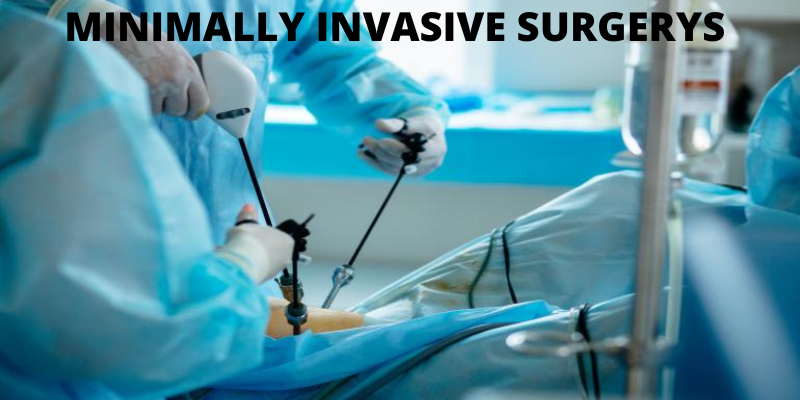Minimally Invasive Surgery (MIS) offers several advantages compared to traditional open surgery. Some of the key benefits of MIS include:
- Smaller Incisions: In MIS, smaller incisions are made, which results in less tissue damage and reduces the risk of infection. Small incisions also lead to smaller scars and improved cosmetic outcomes.
- Reduced Pain: Patients who undergo minimally invasive procedures often experience less pain and discomfort post-surgery compared to open surgery. This can lead to a quicker recovery and less reliance on pain medications.
- Faster Recovery: MIS typically leads to a shorter hospital stay and a quicker return to normal activities. Patients can often resume their daily routines, including work, more swiftly than with open surgery.
- Reduced Blood Loss: Because MIS involves smaller incisions and more precise techniques, there is typically less blood loss during the procedure.
- Lower Risk of Infection: Smaller incisions and reduced tissue exposure minimize the risk of infection. This can be especially beneficial in procedures involving the abdominal cavity or other areas prone to infection.
- Minimal Scarring: Smaller incisions result in smaller scars, which are often less noticeable and can boost a patient’s confidence and self-esteem.
- Improved Cosmesis: The cosmetic benefits of MIS are particularly relevant in procedures that affect visible areas of the body, such as the face, neck, or abdomen.
- Less Discomfort: Patients often report experiencing less post-operative discomfort and pain, which can improve their overall satisfaction with the surgical experience.
- Reduced Hospital Stay: Many minimally invasive procedures are performed on an outpatient basis, meaning patients may not need to stay in the hospital overnight. For those who do require a hospital stay, it is generally shorter than with open surgery.
- Lower Risk of Complications: Minimally invasive techniques can reduce the risk of complications, such as wound infections, hernias, and adhesions, which are more common in open surgery.
- Quicker Return to Normal Diet: In procedures involving the gastrointestinal system, patients can often resume a normal diet more quickly after MIS, as there is less disruption to the digestive tract.
- Lower Healthcare Costs: While the initial equipment costs for minimally invasive procedures may be higher, the overall healthcare costs can be lower due to shorter hospital stays, fewer post-operative complications, and a quicker return to work and daily activities.
It’s important to note that the suitability of MIS varies depending on the specific surgery, the patient’s health, and the surgeon’s expertise. In some cases, traditional open surgery may still be the best option. Always consult with a healthcare professional to determine the most appropriate surgical approach for your condition.
Consult, personalised advice and guidance from Dr. Arohi Tasgaonkar, a Gynaecologist in Thane at in Complete Women’s Care

